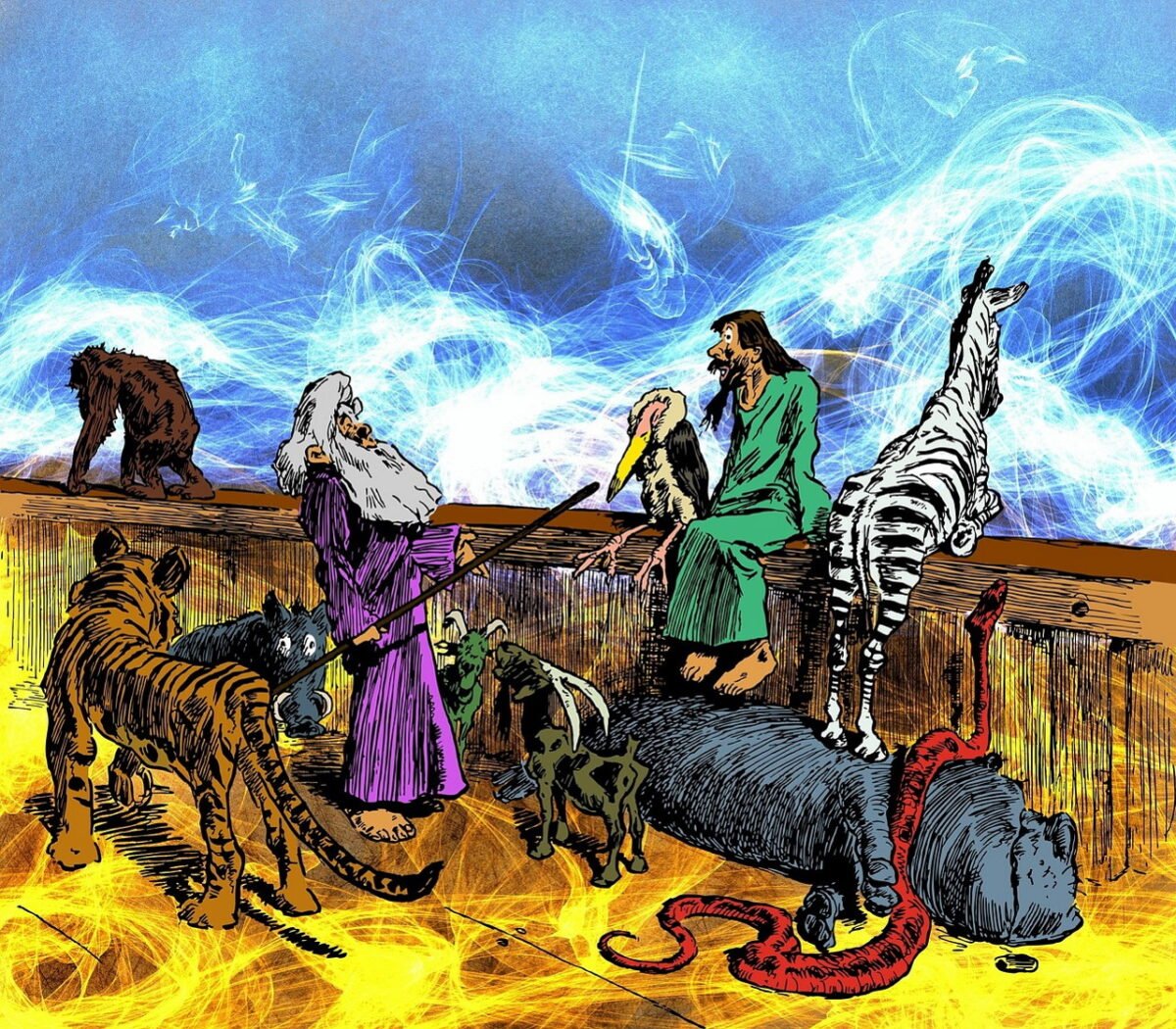Religion has not been a great friend of animals.
Granted, Noah did allegedly save quite a few of them on his ark, but apart from that what has theology ever done for their welfare and rights? Religious creeds and their interpretations have throughout history deeply ingrained our belief that we have total dominion over animals to do as we want. It is one of the few beliefs that all religions seem to share and back in the day when religion was of more relevance and widely followed, it entrenched our attitudes towards animals and how we should treat them continuing right up to the present day. Prior to this many ancient civilisations revered them and had looked upon them as gods with souls and powers.
Beings without mind, reason, souls or status.
Religious attitudes to animals is a complex subject with each religion having its own take on the position of animals in society which varies considerably from culture to culture around the world. Mostly though, all animals have been thought to be beings without mind, reason, immortal soul or moral status, with the emphasis on man being more special to God than non-humans. History is littered with ancient sages, philosophers and theologists who have interpreted the teachings of various religions and set the standards by which we view and should treat them. Generally, theology has not been a great friend to animals.
In the ancient Middle East, the cradle of western culture, the domestication of animals resulted in them having to be debased to elevate human beings above them. Prior to this, ancient civilisations had looked upon many animals as gods and deities. Although the common theme amongst most religions is that they should be shown respect and compassion, they still do not deserve any rights.
Their life and death subject to our use.
Western beliefs were heavily influenced by Christianity which has always maintained that they were put on earth to serve human beings and as St Augustine put it: “by a most just ordinance of the Creator, both animals’ life and their death are subjects to our use”. Most original versions of the Bible gave humans “dominion” over all living creatures with some christian faiths going as far as to tell their followers to “rule over every living thing, multiply and fill the earth and subdue it”.

The Christian Bible has an unfortunate habit of describing them as beasts and is all for going out and killing them, even spreading fear and dread on them. The Christian tradition supported the ideological justification for the abuse of animals right up until the 19th century, when conversely certain Christians started animal welfare charities.
Eastern religion more benevolent.
On the other hand, most Asian or Eastern religions appear to have a more benevolent attitude towards them, if not always so in practice, believing that a human soul could pass into the body of an animal or even that we could be reincarnated as one.
Jainism (part of Hinuism) is the closest you will come to finding a religion that cares strongly about animals and their place in the world and followers avoid causing injury to all life and have a reverence of all creatures. Animals are recognized as sentient beings with feelings and emotions. Jains are obviously vegetarians and some devotees even brush the ground to sweep away life forms they might step on, preferring to be bitten by a snake than kill it.
Islam basically follows the Christian line that humans are the centre of the universe and animals were put here purely to benefit us. The Quran describes them as ‘muslim,’ as they were created by Allah to live and obey Allah’s laws in the natural world. But Allah apparently loved all animals and dictated that they must be treated with kindness and compassion.
Historically Judaism placed great emphasis on the proper treatment of animals and the prevention of “Tsa’ar ba’alei chayim” or suffering of living creatures to the extent that causing unnecessary cruelty to them is forbidden and in this they were far ahead of Western civilisation.
Hinduism mostly teaches that animals and plants are not just objects for wanton human use and consumption. They play an important part in Hindu myths and legends adorning temples and depicted as Gods and Goddesses. They have a compassionate if not complex approach to animals and fundamental regard for their ethical treatment.
Buddhists try to do as little harm as possible to animals and avoid any work that requires killing them as they believe all beings are afraid of injury and death. Animals and humans are treated with equal respect and kindness is shown to all beings, believing through the doctrine of karma that cruel acts to animals should be avoided as they may be paid for in future life.
Unfortunately, with the rush of modern development and western cultural influences, the basic doctrine of eastern religions of respect, and the benefits received by not harming or killing them, does not have the same relevance and reverence as it once did.
Did God love animals?
It is difficult to determine whether ‘God’ in all his/her guises was a supporter of animal welfare and rights as the teachings of the various divinities have been interpreted in so many different ways, but the creed of imposing our will over them remains the basic theme. Psychologically it makes humans feel empowered and manifests itself in our obsession with training or forcing them to obey, behave, do tricks, work and die on our behalf. We still see no problem in killing them out of hand to feed us, keeping up the old traditions of using them as beasts of burden and recently taking a retrograde step in hunting them with bows and arrows for sport, so in many respects we haven’t really moved on at all from our ancient past.
